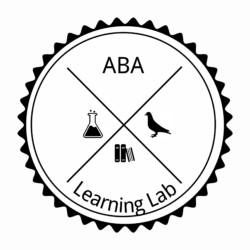By Angela Nelson, MS, BCBA. Executive Director of Family and Clinical Services, Rethink.
It’s no secret that the transition from the teen years to adulthood can be an eventful one, filled with many emotions and milestones, ups and downs. When you have a child with special needs such as developmental disability, this is often an understatement. Parents report feeling nervous about the unknown- what types of services will be available for their child’s unique needs, can they live alone, can they handle a college experience, what company will be a good fit or what happens if they can’t work? – the list goes on. Yes, funding, eligibility, and requirements for programs change as children become teens and adults. That doesn’t mean, however, that the options stop. There are thousands of successful individuals with special needs who are working, going to college, and advocating for themselves-many of whom credit the support of their parents. In fact, two of the biggest predictors of successful transition are parental expectations and parental involvement. Let’s take a look at some areas parents can research now to be well equipped to help their child navigate the path towards achieving early adulthood goals:
Daily Living Skills
Research has shown that one of the most important predictors of positive outcomes in adulthood is mastery of daily living skills (e.g., cooking, bathing, money skills, dressing, etc.). Ask yourself: will my child know how to navigate the community if he/she cannot drive independently (“travel training”)? Will he/she be able to do his/her own laundry? Or perhaps your child struggles with more foundational skills such as brushing teeth or bathing. It’s important to note that strong hygiene and self-care skills can significantly improve your child’s success in future social and work environments. Focusing on reinforcing your child’s strengths in this area and practicing where there are deficits can be a building block for learning more challenging skills and really set him/her up nicely for this next phase in life.
Self-Determinism and Autonomy
Self-determination, or essentially the attitudes and abilities needed to be one’s own decision maker without influence or interference, is sometimes a concept that isn’t atop parents’ initial priority list. We are often thinking about specific language, social, or academic goals but as your child grows, being autonomous and acting according to their own interests and abilities can lead to several positive outcomes- reduced behavior challenges and increased engagement in school or work to name a few. Teaching decision-making, problem-solving, goal setting, and accepting consequences of one’s actions can strengthen your child’s development of self-determination, help them feel more independent, and prepare them for life’s tougher decisions down the road.
Social and Community Network
Many parents and service providers alike will agree that having a strong network can not only provide a wealth of resources and an opportunity to share information, but also lend a sense of community, allow your child to make new friends, and even participate in job networking. The transition planning process can be overwhelming when you consider all the different aspects of your child’s life that need to be organized. Having a group to connect with, share experiences, and provide support can make this process easier not only for your child, but for you as a parent as well. Locating networks within your child’s school district, locally, or even online can be a great way to get more connected and clued in to valuable information.
Employment/Education/Day Programs
Will your child go on to college, find a job, volunteer, or enroll in a community-based program? Many parents are pleased to find just how many options are out there. Companies are now even being named for their focus and attention on accommodating and supporting employees with special needs! It’s important to connect with adult service providers early so they can help your child experience successful community/work/school integration. Let’s take a look at a few common post-high school experiences for individuals with disabilities:
Employment-
If your child is on the path to employment, help him/her think about their fields of interest, discover volunteer or internship opportunities to gain experience, and learn as much as possible while in middle or high school. Keep in mind there are several levels of employment, from competitive employment (full-time or part-time, market wages, usually no extra supports) to more supported employment opportunities (on-the-job support to various degrees, funded by numerous sources). If this is the route your child is interested in, encourage him/her to practice skills such as communication, interpersonal skills, and decision-making skills. This can be done by helping them identify their learning style, practice asking for accessible formats, practice clear handwriting and grammar, do mock interviews and job applications, brainstorm solutions to hypothetical problems, have them practice teaching you a skill, review pleasantries and conflict resolution, and the list goes on. Remember, one of the best predictors of a job post-high school is having a job before graduation!
College/Post-Secondary Education-
If higher education is a goal for your child, educate yourself on the different options that are available. The most common options are four-year universities, cooperative education opportunities alternating between academic classes and working in the field of choice), community colleges, vocational/ trade schools, and life skills programs. It’s important to note that after age 22, your child is no longer covered under the Individuals with Disabilities Education Act (IDEA) (http://idea.ed.gov/) but they are still protected under the civil rights laws of Section 504 and the Americans with Disabilities Act (http://www2.ed.gov/about/offices/list/ocr/504faq.html). What this means is that your child is protected from discrimination in settings such as higher education or work but that services or accommodations need to be requested and your child must start to advocate for him/herself. There are no more IEPs. Your child must request more time on a test if he/she needs it, for
example. To prepare for this next stage in your child’s life, talk to guidance counselors, visit potential colleges, ask about their supports for students with disabilities, talk with parents of older children who have made these decisions previously to gain their insight, and of course, start practicing self-advocacy skills now.
Day programs-
If your child is not ready or able to work or attend higher education, they may consider various day programs. A day habilitation program can provide supports in the areas of independent living
skills and community integration. A day treatment program focuses more on therapeutic approaches to daily living skills and takes place within a program site as opposed to the community.
Housing
The topic of where your child will live can be one of the most monumental decisions for special needs families. Finances and your child’s abilities top of list of considerations but it’s important not to forget taking a person-centered approach to this decision. Person-centered thinking involves what type of housing your child wants to live in. Person-centered planning is driven by their unique hopes, dreams, what’s important to him/her, such living near the city center or the library. As it relates to the logistics, a good place to begin your research is with your child’s school district as they
can provide you with local resources, especially the several types of funding options for housing. When deciding the appropriate housing model, some options are:
- Independent Living- living on their own with no outside supports
- Supported Living- living on their own with minimal supports from caregivers
- Supervised Living- living with up to 24 hours of support, if needed, and structured teaching in areas of life skills (e.g., cooking, managing finances, etc.)
- Group Home Living- living in a home with usually 8 or fewer individuals with disabilities that is owned by a provider agency who employs staff 24/7 to provide support to the residents
- Group ownership/Co-op- living with a group of individuals in a home owned by the group or their families with caregivers who are hired by the co-op
- …and the list goes on in increasing level of assistance
Legal/Financial Planning
Legal and financial planning for your child may rank low on your fun factor scale but doing early research and preparation can make this process more tolerable. There’s no way around it-you have to do your homework here. There are many laws and programs that your child may be eligible for, some state-specific, and not knowing could cost you later. The Social Security Administration has 2 programs for adults with disabilities- Supplemental Security Income (SSI) and Social Security Disability Insurance/Disabled Adult Child Benefits (SSDI). Those eligible for SSI can also receive Medicaid (https://www.ssa.gov/disability/). State-run Home and Community-Based Waiver Services (HCBS) are also available to individuals with developmental disabilities, which may help families fund medical services, respite, case management, etc. You may need to consider your child’s ability to make decisions about his/her health, finances, and other important aspects of their life. Some possible avenues may include:
- Guardianship- when an individual is given legal authority to make decisions on behalf of another individual with a disability. There are 2 types: limited guardian (can make decisions in certain domains) and general guardian (wider control over many domains)
- Conservatorship- when an individual manages only the finances of another individual with a disability and is filed through Probate Court
- Power of Attorney- when an individual is appointed by another individual with a disability to make decisions on their behalf, but the individual with a disability still has more control than if they were conserved.
Lastly, you may want to consider a letter of intent. Though not a formal, legal document, it contains your child’s history, needs, and hopes for the future, and serves to inform caregivers and the court of how to best care for your child if you are no longer able to. This should be dynamic and involve your child as much as possible.
Overall, preparing your child to transition to adulthood can take a significant amount of research and planning on your part. Remember that although any child with an Individualized Education Program (IEP) will have transition planning services to discuss many of these topics in early high school, some of these topics should be considered much sooner. There are often long wait lists for housing (sometimes up to 10 or 15 years!) and community services, and getting a head start can allow you to go at a more leisurely pace while taking time to have thoughtful discussions with your
child. The good news is there are many supports available to help parents and provide guidance. Since every child is unique, begin the process of learning about the services available to your child and talk with them about their hopes for the future.
References:
www.pacer.org
www.autismspeaks.org/docs/family_services_
docs/transition.pdf
www.ngsd.org/
www.ohioemploymentfirst.org

